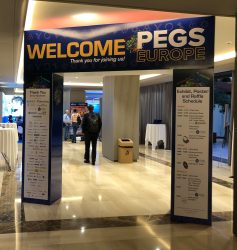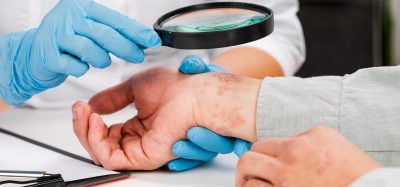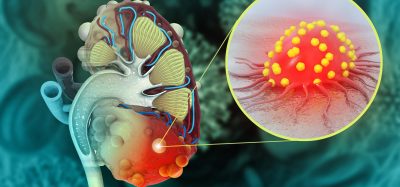Highlights from PEGS Europe’s Protein & Antibody Engineering Summit
Posted: 17 November 2022 | Ria Kakkad (Drug Target Review) | No comments yet
Drug Target Review’s Ria Kakkad recently travelled to Barcelona to attend PEGS Europe’s Protein and Antibody Engineering Summit. In this article, she shares her highlights from the event.


This year’s PEGS Europe Protein and Antibody Engineering Summit, hosted by the Cambridge Healthtech Institute (CHI), US, took place in Barcelona, Spain, and was attended by Drug Target Review’s Ria Kakkad. The conference was in a beautiful location in the Catalan capital, surrounded by landmarks such as Plaça d’Espanya and Castell de Montjuïc. It was a great opportunity to connect with drug discovery academics, scientists and industry professionals from all over the world.
Dr Jikia Palich Fucikova lead of the first immunotherapy sessions of the event. Her talk focused on ovarian carcinoma (OC), one of the top five causes of cancer-related death in women. In her presentation, she emphasised that new strategies are required to improve the clinical success of ovarian cancer immunotherapies. In addition to new strategies such as immunogenic chemotherapeutic anticancer agents, adoptive T-cell transfer strategies and vaccination approaches, she explained that the identification of reliable biomarkers is necessary to identify OC patients who could benefit from specific immunotherapy treatments.
Fucikova’s presentation was shortly followed by Dr Stephen Beers from the University of Southampton, UK. In this session, Beers shared methods in which the tumour microenvironment can suppress antibody therapies and therefore decrease their efficacy.
Antibodies and cancer were popular themes throughout the event and Dr João Gonçalves from the University of Lisbon, Portugal, shared his research into nucleolin-targeting nanobodies targeting triple-negative breast cancer. He explained his methods, which involved optimising antibodies through random mutagenesis in E. coli and selecting endocytic properties via flow cytometry. Gonçalves highlighted that the best nanobody candidates presented a single mutation in CDR3 and showed increased potency.
The first day of the conference ended with a networking session, where professionals had the chance to connect over drinks and tapas. It was a great opportunity to view posters created by academics and find out more about their research. For example, Victoria Goldenshtein, a PhD candidate from Duke University, US, created an engaging poster on her lab’s novel in vitro library display platform for directed protein evolution.


Entrance to PEGS Europe exhibition hall
One of the highlights of the second day of the event was the plenary keynote session, presented by Dr Jane Osbourn OBE from Alchemab Therapeutics. Osbourne’s session highlighted the evolution of monoclonal antibodies since being discovered in the 1970s and highlighted how much of a beneficial impact the technology has had on research, an example being that the pharmacokinetic characteristics of an antibody are now well understood and can even be controlled.
When looking into the future, Osbourn made a few suggestions on where the antibody community needs to look next, for example:
- Using antibodies to generate cures
- Providing treatments for neurogenerative diseases
- Using artificial intelligence (AI) for lead design and understanding repertoire biology.
One of the final keynotes of the conference included a presentation from Dr Salvador Ventura, a professor from University Autonoma de Barcelona, Spain, where he talked through a structure-based approach to tackle protein aggregation in Parkinson’s disease. Ventura highlighted his research in which his lab exploited the structural properties of toxic oligomers and amyloid fibrils to identify a family of peptides that bind to Alpha-synuclein species with low nanomolar affinity, without interfering with the monomeric functional protein.
Ventura ended his presentation on an exciting note, emphasising that he is looking to use antibodies and immunotherapy to slow the progression down of Parkinson’s. Despite immunotherapy failing to treat neurological disorders so far, it is clear that Ventura is working on a promising project, although he was not able to reveal much information yet.
It was great to hear from and see so many scientists and experts at the forefront of drug discovery. From this PEGS Europe event, it was exciting to see how progression is being made from pre-clinical stages towards the clinic.
Related topics
Antibodies, Antibody Discovery, Disease Research, Drug Discovery Processes, Immunotherapy, Neurosciences, Protein, Protein Expression, Small molecule
Related conditions
ovarian carcinoma (OC), Parkinson's disease, Triple-negative breast cancer
Related organisations
Cambridge Healthtech Institute (CHI)








